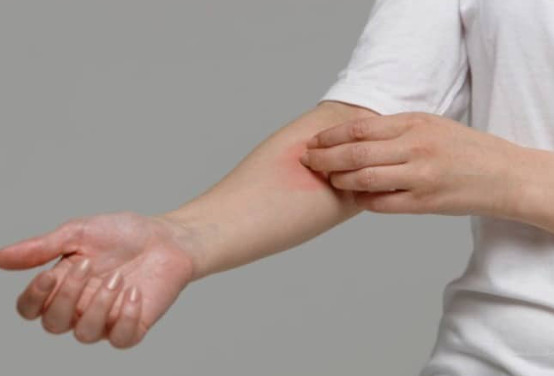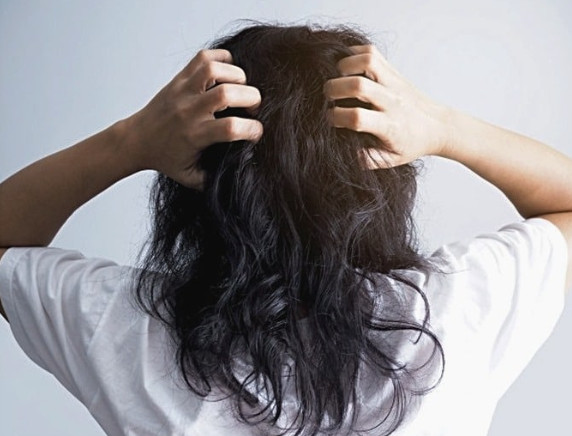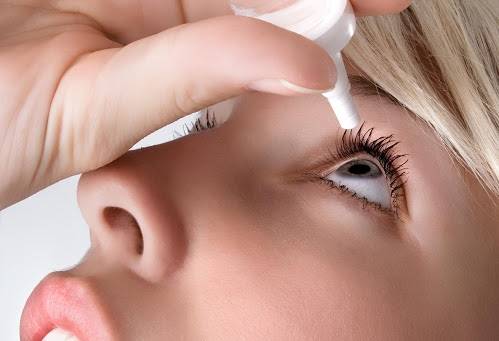The causes and treatments of body itching
Are you always itching your skin? Depending on its severity, itchy skin can cause severe discomfort in your daily activities and sleep. An underlying disease can cause mild to severe itching as a symptom.
Symptoms of itching include insect bites, eczema, and allergic dermatitis. An insect or mosquito bite causes a skin reaction that causes redness, swelling, and intense itching in the affected area.
People with eczema or allergic contact dermatitis are prone to relapses, characterized by itching in the affected area. The symptoms of itching are usually long-term, so people with such skin diseases learn to live with itchy skin by using creams and ointments. Itching, however, may have no apparent cause.

In the absence of physical symptoms, it is difficult to reach a definite diagnosis if the itchy feeling, rash, or any visible signs are not signs of skin irritation. A doctor may decide which treatment options are appropriate in the absence of a correct diagnosis.
Itching on the skin can vary in intensity, duration, and frequency. Skin irritation usually causes itching as a natural defense reaction.
A burning sensation can either be limited to a specific area of the body or cover the entire body. Environmental stimuli are blocked by the epidermis, or surface layer of the skin.
The smallest disturbance or breach in this protective coating stimulates our immune system. Itching occurs when skin cells release an inflammatory chemical called histamine to deal with irritation sources.
The receptors in our skin send a message to our brain, causing us to itch.
Itching of the body is caused by the following factors:
The skin protects the inside of the body. There are cells of the immune system in the skin that protect the body from viruses, bacteria, and other hidden threats. Whenever skin cells identify a suspicious substance, they create a reaction that causes inflammation.
Professionals refer to this inflammation as dermatitis, which can cause itching. The immune system reacts to anything that touches the skin, as well as to an infection or disease that affects the whole body.
Some pimples are red, painful, and irritating, while others cause blistering or flaking of the skin.
Many skin complaints are characterized by itching. Itchy skin can occur anywhere on the body or only in certain areas.
The following are some specific causes of itchy skin:
Skin that is dry:
Itchy skin is often caused by dry skin. A person may have dry skin if they do not have bright red pimples or notice a sudden change in their skin.
Hot and cold weather with low humidity can contribute to dry skin. Skin can become dry if it is washed too often.
People of any age can suffer from this condition, but as they age, their skin becomes thinner and drier. Dry skin can usually be repaired by applying a good moisturizer.
A dermatologist should prescribe it if your skin is extremely dry, as it can be a warning sign of dermatitis.
Dry skin is characterized by the following signs and symptoms:
Skin that is rough, scaly, and scaly
Itching that is severe
People with darker skin tend to have gray or purple skin
Bleeding skin cracks
Lips that are crusty or cracked
In order to treat dry skin, you should seek professional help since cracks in the skin can allow germs to enter. Infection can result from the presence of these microbes inside the skin.
The first sign of an infection is often red spots and sores on the skin.
Dermatologists may prescribe topical medication or a special moisturizer to apply throughout the day.
Eczema:
The most common cause of skin rashes in children is eczema or atopic dermatitis. Only 1 in 50 adults have eczema, compared to 1 in 5 babies.
Inflammation and burning occur as a result of skin leakage. Skin moisture must be maintained in such cases.
Over time, eczema often improves. Infections of the skin are more likely to occur in people with eczema.
Allergies:
Itchy skin can be caused by irritation and allergic reactions. In contact dermatitis, an allergen comes into direct contact with the skin.
Skin allergies cause a red rash with blisters or bumps. Rashes occur when the immune system attacks an allergen, a substance that comes into contact with the skin.
There is often a delay between contact with the allergen and the onset of the rash. Clothing, pets, chemicals, soap, and substances like food poisoning and cosmetics can cause allergic reactions.
Nickel allergies are very common. A person may experience red, raised, itchy, and swollen skin when they come into contact with jewelry containing nickel.
When someone has an allergic reaction to a certain substance, avoiding it is one of the easiest things to do. A pimple can be treated with non-prescription creams or medical creams.
Hives:
Hives are a type of skin inflammation caused by the release of a chemical called histamine. Swelling of the skin is also caused by the release of small blood vessels.
Bee hives come in two types:
Urticaria acute:
An allergic stimulus, such as food or medicine, usually causes this problem. Triggers can also include non-allergic factors such as hot or cold weather, sunlight, or exercise.
Urticaria chronica:
Allergy tests cannot be helped by specific triggers. It can take months or even years for them to subside. Despite being uncomfortable, itchy, and painful, hives are not contagious. Twenty percent of people have experienced hives in their lifetime.
Bites from insects:
Skin inflammation is often caused by insect bites. A mosquito bite or a spider bite leaves a small bite mark surrounded by a red spot on the skin. Within 7-14 days, the sting should disappear.
Insect and tick bites can cause a rash and itching all over the body. When a person’s room is infested with insects, he should remove all furniture and disinfect it thoroughly.
Psychiatry:
Itching may occur without a physical cause. People suffering from mental health problems may feel as if their skin is crawling and that they need to scratch it. Skin damage can result from excessive scratching.

There are several conditions that can cause compulsive itching:
Feeling depressed
Anxiety
The disorder of obsessive compulsive behavior
Itching in women’s bodies
Itching during pregnancy:
There is a red, itchy rash on the hands and feet that appears as red, itchy spots.
Menopause:
During menopause, when women’s periods change naturally due to hormonal changes, itching is common. Itching is caused by changes in hormone levels during menopause, such as estrogen.
Anxiety
Angst
The disorder of obsessive compulsive behavior
Mental illness
The trichotillomania
It is unlikely, but it is possible. The cause of itching is usually simple and common. In some cases, however, this is not true and it can be a sign of a serious illness, such as:
Diseases of the kidneys
Diseases of the liver
Problems with the thyroid
Hodgkin’s disease, for example, is one type of cancer
Diabetic syndrome
Iron deficiency
HIV
Itching may also occur after treatment for some of these diseases. Dialysis of the kidneys
The chemotherapy treatment
Radiation therapy
What is the best time to see a doctor if you have body itching?
Itching usually goes away within a few days. Your general practitioner should be consulted if you experience the following symptoms of itching:
Intensive
Let’s stay a while
Come back again and again
There may also be other symptoms such as redness, swelling, or jaundice (yellowing of the skin and eyes).
An abnormal burning sensation or numbness may indicate a problem with the nervous system.
Diabetes can cause excessive thirst, weight loss, and frequent urination.
A serious infection or tumor can cause weight loss, fatigue, and night sweats.
You will be asked by your GP about your symptoms – for example, what makes you itch, and how the itching goes away. Your skin will also be examined.
To diagnose the cause of the itching, they may take a skin sample or a skin swab. To check for thyroid or kidney disease, a blood test may be performed.
A hospital specialist may be referred to you for further evaluation and specific treatment depending on the cause of your itching.
Itching of the skin can be diagnosed as follows:
Your health care provider will perform a physical examination and ask you a few questions about your symptoms in order to narrow down the cause of your problems. Your doctor will be able to formulate an appropriate strategy based on an in-depth analysis and assessment of your condition. Provide treatment suggestions.
The following may be asked of you:
What is the duration of skin irritation?
Is the itching constant or does it occur periodically?
Are you suffering from severe allergies?
What part of the skin itch?
Have you recently been diagnosed with taking medication? Or are you currently taking medication? What do you think?
What harmful substances have you been exposed to?
Here are some home remedies for relieving body itching:
There are some tested and natural remedies for itchy skin in the moist health section. Relax as long as you need with these treatments.
Soda:
Fill a bathtub with cool water and add 1 cup of baking soda. Dissolve the baking soda by stirring well. Spend half an hour in this water. Dry your skin gently with a rough towel instead of rubbing it. Every day, do this.
Prepare a paste by mixing 3 tablespoons of baking soda with 1 tablespoon of water for localized itching. Leave the paste on the affected areas for about 10 minutes. Every day, do this.
It is not recommended to use baking soda on cracked skin or open wounds.
Flour made from barley:
In a bathtub filled with lukewarm water, add 1-2 cups of oats. Spend at least 20 to 15 minutes in this water. Do not use hot water on your skin, as it may cause further irritation.
Depending on the severity of your condition, you can take an oatmeal bath up to three times a day. 2 tablespoons of barley flour should be mixed with a little water until it becomes dough-like in consistency.
Cover your itchy skin with a cloth and leave it for half an hour. Once a day, perform this treatment.
Treatment for mild colds:
For as long as necessary, apply cold tap water to the affected area. Wrap an ice pack in a cloth and apply it to the affected area. Make sure you take a cool shower or bath. To treat the affected area, apply a cold towel or cloth dampened with cold water.
Oil of olives:
Healing and regeneration of the skin can be improved with olive oil. Additionally, it soothes the skin and reduces itching. Until cured, apply olive oil or a combination of olive oil and honey several times a day.
Turmeric powder can also be added to olive oil and used two or three times a day for a few days. Itching can be relieved by turmeric’s antibacterial and anti-inflammatory properties.
Castor oil and coconut oil can also be used to heal pimples naturally. Vitamin E oil and cod fish oil can also be combined therapeutically.
Vinegar made from apple cider:
ACV is antiseptic, anti-itch, anti-fungal, and antibacterial, which helps relieve itching. Add 1-2 cups of apple cider vinegar to a tub of lukewarm water. Spend 15 to 30 minutes in the tub. Apply a mild moisturizer after drying your skin. Make sure you do this every day.
Apply equal amounts of apple cider vinegar and water to the affected areas with a cotton ball for more topical itchiness. After a few minutes, wash it off with lukewarm water. Once or twice a day for a few days, do this.
Cloves and mountain cypress berries paste:
Add 6 tablespoons of unsalted butter to the pot. Melt two tablespoons of wax in another pot. Stir the melted wax with the melted butter.
Add 5 tablespoons of mountain cypress berries and 3 tablespoons of cloves. Allow the mixture to cool. Leave the mixture on the affected skin overnight. Take a cold shower in the morning. Make sure you do this every day.
An aloe vera plant:
Remove the gel from one aloe vera leaf. The gel should be applied to the affected area. After 15 minutes, wash it with lukewarm water. Once a day, use this simple remedy.
Alternatively, you can mix 1 tablespoon aloe vera gel with 2 tablespoons green clay to make a paste. The paste should be applied to the affected area and allowed to dry on its own. Rinse it off with lukewarm water.
Basil:
To 2 cups of boiling water, add 1 tablespoon of dry basil leaves. For a few minutes, cover the pot. Using a cotton cloth, apply the mixture to the affected area once it has cooled.
Keep the rest of the mixture in a jar for later use. You may repeat this process as often as necessary. Basil leaves can also be crushed and applied directly to the affected area.
After letting it dry, wash it with lukewarm water. If necessary, do this.
Oil of peppermint:
Fill a bathtub with lukewarm water and add a few drops of peppermint oil. Spend half an hour in this water. After drying your skin, apply a moisturizing lotion. Once a day, do this.
Combine 3 or 4 drops of peppermint oil with 1 tablespoon of a carrier oil, such as coconut, olive, or almond oil. Dilute peppermint oil and apply it to the affected area. Massage the area gently until the oil penetrates the skin deeply.
Do not apply peppermint oil directly to the skin, as it can burn.
Here are a few more tips about body itching:
To avoid harming yourself while sleeping, wear cotton gloves.
To cool your hand, apply a cold water compress.
After showering, apply a gentle lotion to prevent your skin from drying out.
It is likely that mild laundry detergent will irritate your skin.
Itching can be reduced with lotions, creams, and medications available over the counter or prescribed by your doctor.
There are a number of common treatments recommended for body itching, including:
You can cool your skin with creams containing menthol.
You may feel drowsy after taking some antihistamine tablets.
If taken at night, they can help you sleep, but you should not drive, use power tools, or operate heavy machinery afterwards.
If the above treatments don’t work and the itching persists, stronger medications, such as antidepressants, may be recommended.


